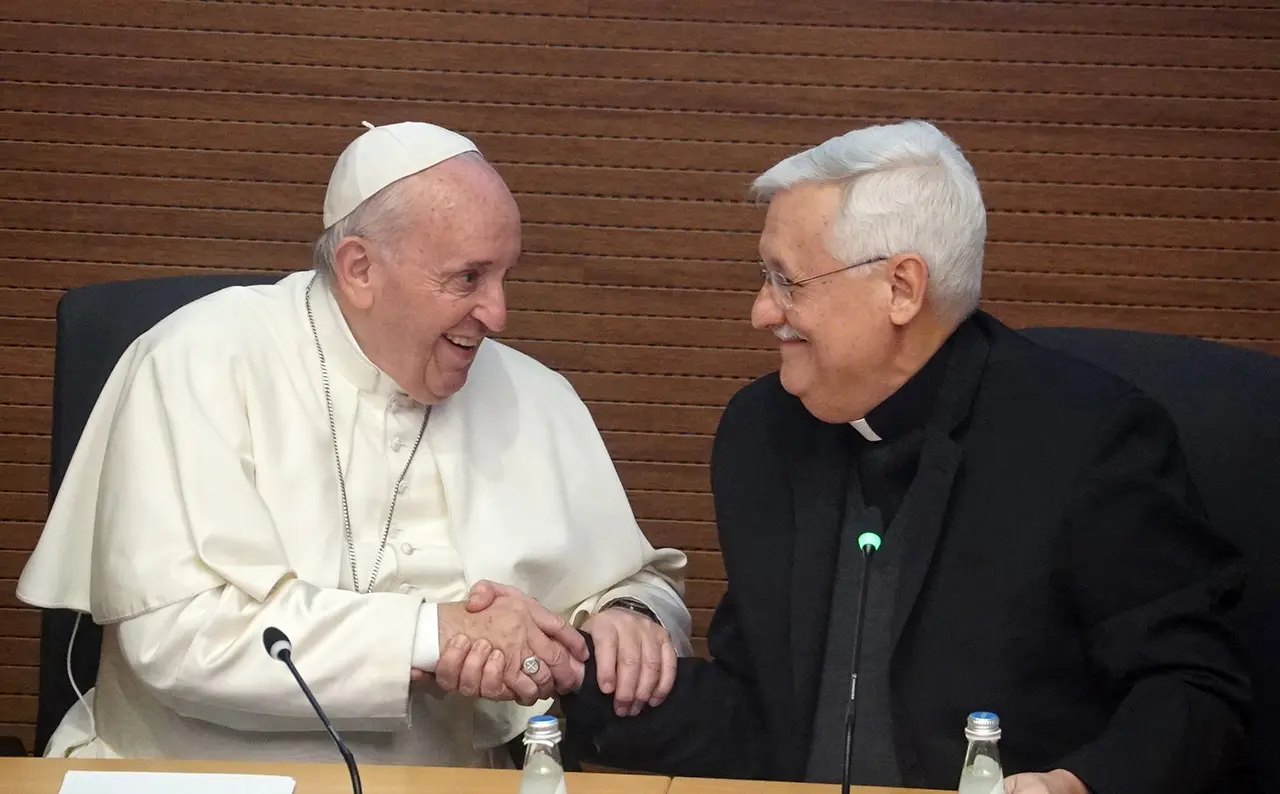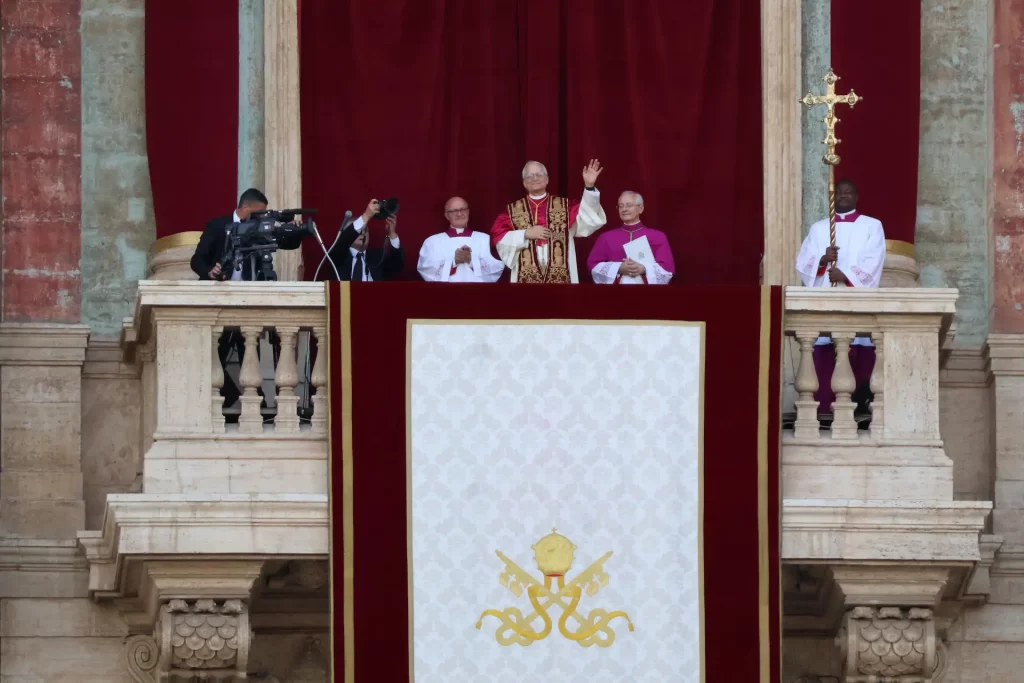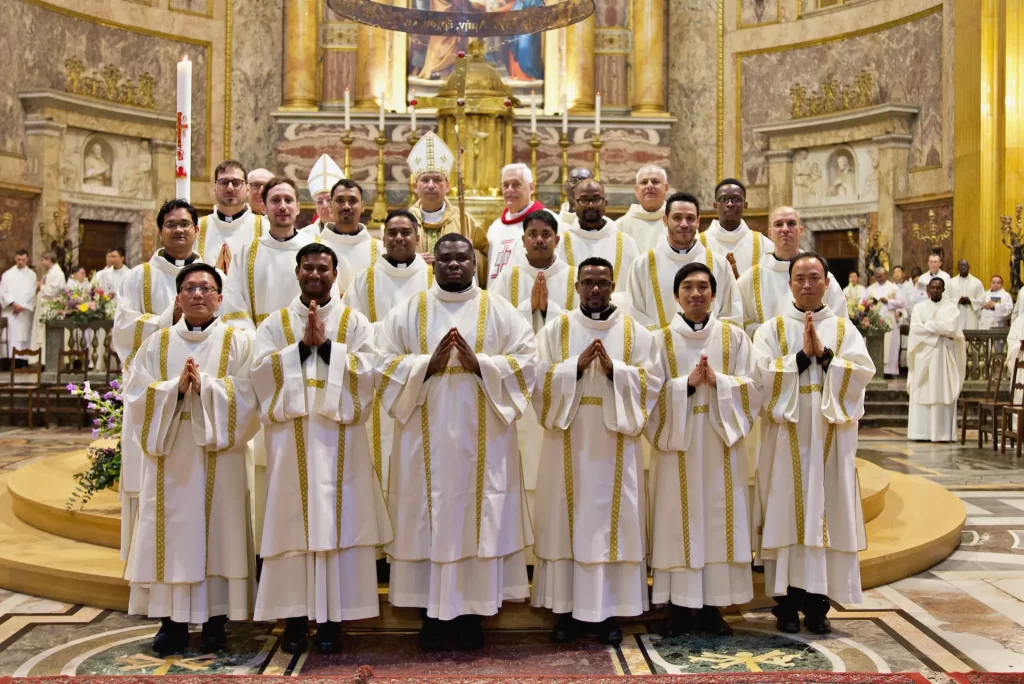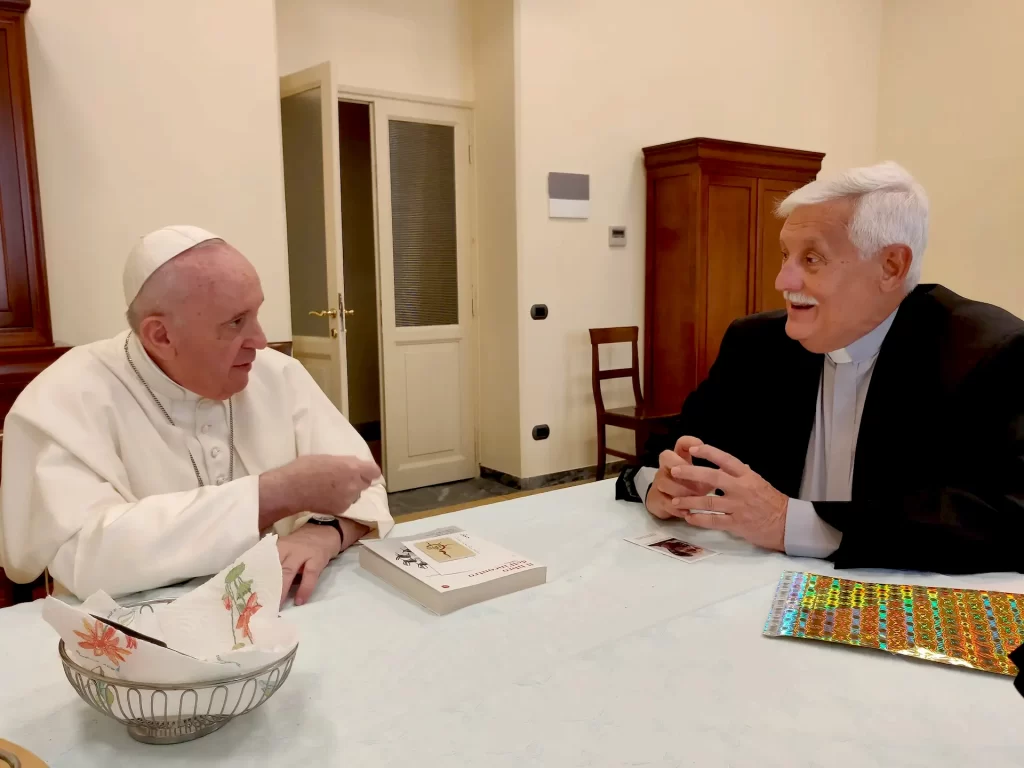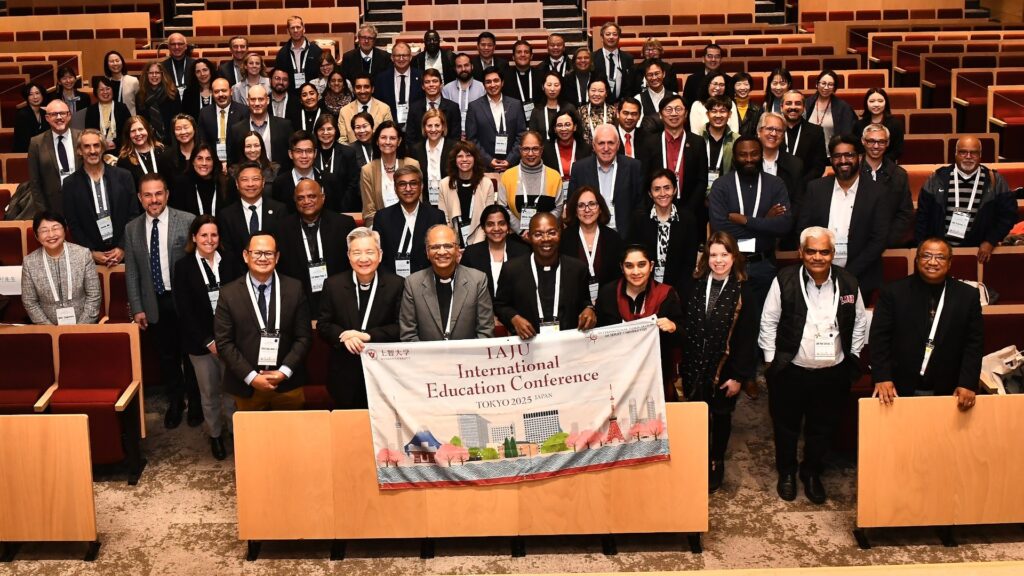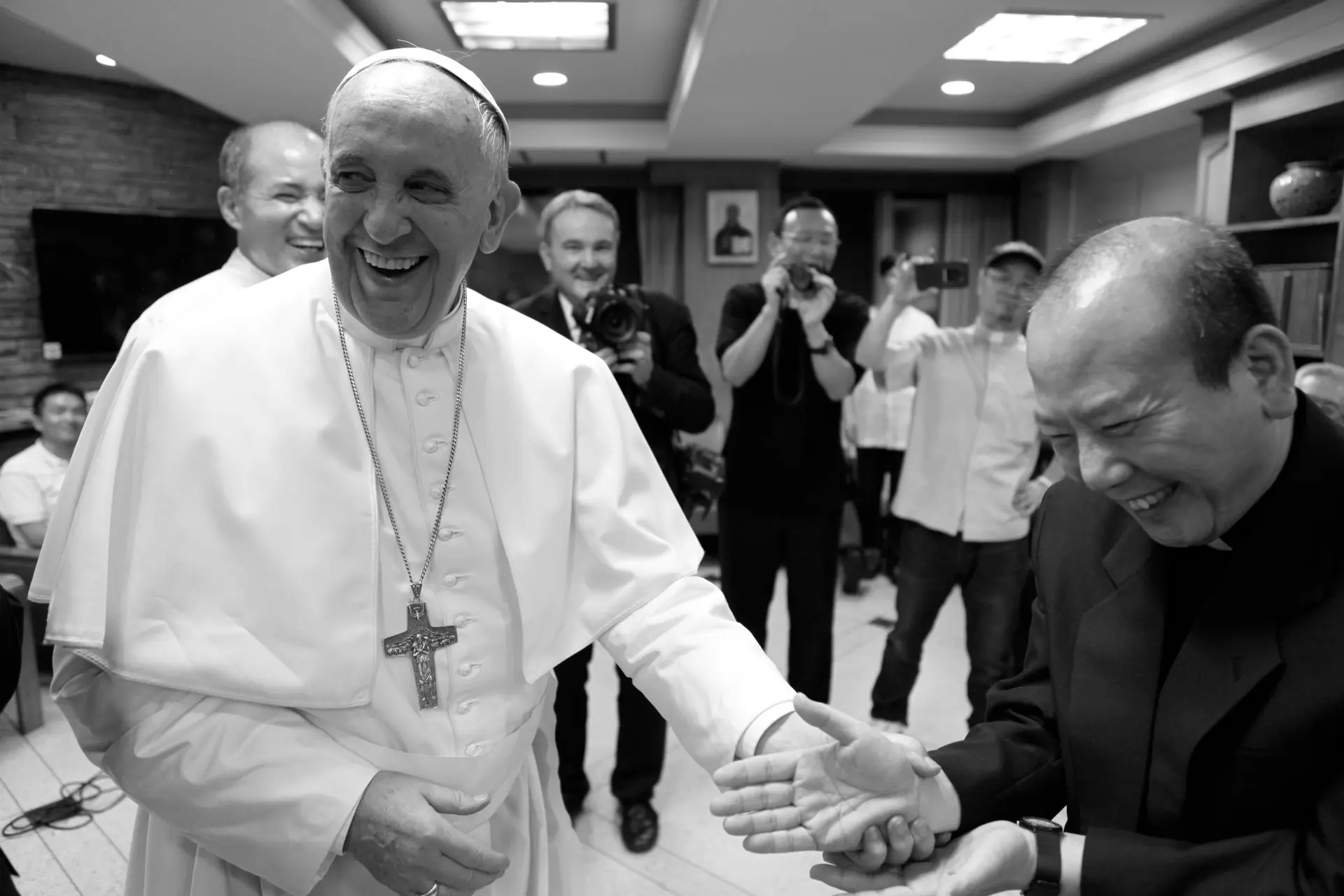
Pope Francis during his apostolic visit to Korea in 2014
Pope Francis, who led the Catholic Church for 12 years from 2013 to 2025, passed away on Easter Monday, 21 April, at his residence in the Vatican’s Casa Santa Marta. He was 88 years old.
He was the first pope from Latin America, the first Jesuit pope, the first to take the name Francis in honour of St Francis of Assisi, and the first to be elected after his predecessor’s resignation.
“We are deeply saddened,” wrote Jesuit Conference of Asia Pacific President Fr Jun Viray SJ in his message for the conference’s annual report. “Despite the uncertainties and challenges of this life, Pope Francis himself reminded us of the need for hope and the importance of anchoring our hopes in the Lord.”
Born Jorge Mario Bergoglio in Buenos Aires on 17 December 1936, he was one of five children of Italian immigrant parents. He initially planned to become a chemist but abandoned his chemistry studies after losing part of his lung due to respiratory illness. Instead, he entered the Society of Jesus on 11 March 1958 and was ordained a priest on 13 December 1969, at the age of 32.
Much of his early career was spent teaching literature, psychology, and philosophy. From 1973 to 1979, he served as the Jesuit provincial in Argentina, and in 1980, he became the rector of Colegio de San José, the seminary from which he had graduated. He was named auxiliary bishop of Buenos Aires in 1992 and later succeeded the ailing Cardinal Antonio Quarracino in 1998. Pope John Paul II made Bergoglio a cardinal in 2001, assigning him the Roman church dedicated to the legendary Jesuit St Robert Bellarmine.
After becoming archbishop of Buenos Aires, he chose to live in a modest apartment rather than the traditional archbishop’s palace. He cooked his own meals and used public transportation instead of a chauffeur-driven car. He became known for his simple lifestyle and dedication to social justice.
Bergoglio was elected pope on 13 March 2013. His pontificate was marked by a passion for evangelisation and a continuous effort to reform the Church to make her more missionary. Among the structural reforms he introduced was the Apostolic Constitution, Praedicate Evangelium, which gave the Curia a more missionary focus and increased participation of lay men and women. His efforts in economic and financial transparency also led to the creation of the Secretariat for the Economy.
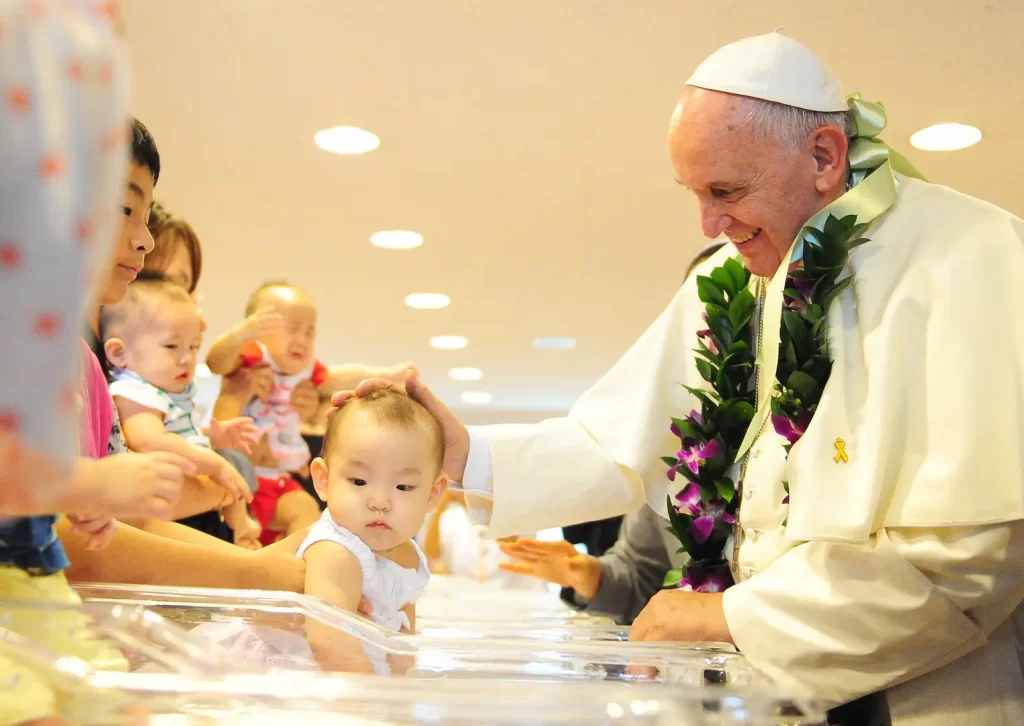
Image courtesy of the Preparatory Committee of the Pastoral Visit of Pope Francis to Korea
In his autobiography Hope, Francis reflected on his childhood in the Flores barrio of Buenos Aires, describing it as a “complex, multiethnic, multireligious, and multicultural microcosm.” He recalled how “differences were normal, and we respected each other,” highlighting his relationship with Catholic, Jewish, and Muslim friends. He also recalled his upbringing in Argentina and his family’s migration from Italy. These experiences would profoundly shape his leadership as pope.
Ecumenism and interreligious dialogue were central themes of his papacy, as seen in his historic 2016 meeting with Patriarch Kirill, the 2019 Document on Human Fraternity with Grand Imam Ahmad Al-Tayyeb—an important milestone in Christian-Muslim relations—and the Joint Declaration with the Grand Imam of Istiqlal, Nasaruddin Umar, during his visit to Indonesia in September 2024.
His commitment to environmental stewardship was highlighted by Laudato sí, which called for ecological conversion and care for our common home. His push for synodality aimed to make the Church more inclusive through widespread consultation.
Throughout his papacy, Francis consistently advocated for migrants and refugees, urging the Church to welcome, protect, promote, and integrate migrants and refugees. His first pastoral visit outside of Rome was to the southern Italian island of Lampedusa in July 2013, where he denounced the “globalisation of indifference” towards migrants who risk their lives trying to reach Europe. In 2016, he returned from Greece with 12 Syrian migrants aboard his plane. During his apostolic journey to Myanmar, he encouraged the local Jesuit community to build bridges and work for peace and reconciliation, emphasising that pastors should carry both “the smell of the sheep and the smell of God”.
On 24 October 2016, Francis joined the delegates of General Congregation (GC) 36, which elected Fr Arturo Sosa SJ as Superior General. Reflecting on the Pope’s audience, Fr Steve Curtin SJ, delegate from the Australian Province, wrote: “Pope Francis was quite clear that the way forward is the way of Ignatius, the way of journeying compassionately with the people of the Church wherever they are, and seeking out especially those who are hurting.”
In his letter to the whole Society of Jesus following the death of Francis, Fr General Arturo Sosa SJ expressed deep sorrow shared by the Church and all people of goodwill. “We mourn the passing of one who was placed at the service of the Universal Church and exercised the Petrine ministry for more than 12 years,” he wrote. “At the same time, we feel the departure of our dear brother in this mínima Compañía de Jesús, Jorge Mario Bergoglio. In the Society, we have shared the same spiritual charism and the same manner of following Our Lord Jesus Christ.”
Fr Sosa recalled the Holy Father’s address to GC 36, where he affirmed that a Jesuit is called to be a servant of the joy of the Gospel, regardless of the mission he is engaged in. It is this joy, the Pope said, that must characterise the Society’s way of proceeding—one that is ecclesial, inculturated, poor, focused on service, and free from all worldly ambition.
“We remember with grateful hearts the discreet and constant attention of Pope Francis to the Society of Jesus, to our life and our apostolate,” Fr Sosa continued. “Confident that the Lord is welcoming his faithful Servant to the banquet of heaven and moved by his example, we renew our desire and our commitment to follow Jesus poor and humble and to serve his Church.”
On 14 February, Francis was admitted to Rome’s Gemelli hospital for a respiratory tract infection and was later diagnosed with bilateral pneumonia. He returned to his residence at the Vatican on 23 March. His death came just a day after he appeared on the balcony of St Peter’s Basilica on Easter Sunday to wish the crowd at St Peter’s Square: “Brothers and Sisters, Happy Easter” and rode through the piazza in the Popemobile to bless the people.
His funeral will take place on Saturday, 26 April. Francis will be buried in the Basilica of Santa Maria Maggiore instead of the grottoes in St Peter’s Basilica.
Watch “The life of Pope Francis through the eyes of his Jesuit brothers”
This article was updated on 22 April.

